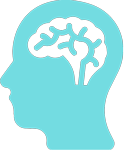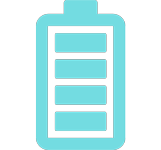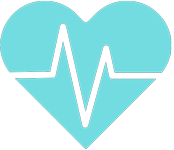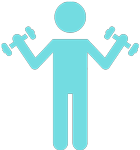
Testosterone & Age
Testosterone is the main sex hormone in the male body and affects every aspect of your health and performance. Testosterone levels naturally begin to decline between the ages of 30 and 40 – total testosterone levels decrease on average by 1.6% per year, whilst, free and bioavailable levels (the amount that can be utilised by your body) fall by 2%–3% per year. This can further be impacted by lifestyle factors, like excessive alcohol consumption.
Have you noticed low libido and fewer erections, fatigue, trouble sleeping, difficulty maintaining or building muscle, unexplained weight gain, mood swings, and brain fog? If you’re a man aged 30 or above, this could be caused by low testosterone.
At the Marion Gluck Clinic, we use Testosterone Replacement Therapy (TRT) to restore the balance of testosterone in the body. We use bioidentical hormones to create a discreet, effective TRT programme completely personalised to your needs, so you can start to feel like yourself again.
Testosterone & Age
Testosterone is the main sex hormone in the male body and affects every aspect of your health and performance. Testosterone levels naturally begin to decline between the ages of 30 and 40 – total testosterone levels decrease on average by 1.6% per year, whilst, free and bioavailable levels (the amount that can be utilised by your body) fall by 2%–3% per year. This can further be impacted by lifestyle factors, like excessive alcohol consumption.
What Can TRT Do For You?
Testosterone contributes to the healthy function of many systems within the male body, including the reproductive, central nervous and circulatory systems. TRT can help you regain the many elements of your health and lifestyle that have been impacted by testosterone depletion. This includes:

Mental agility
Problem solving, decision making, mood, memory

Emotional health
Controlling low moods and mood swings

Libido
Sexual drive, erectile function

Energy
Improves fatigue, energy & drive

Cardiovascular function
Blood flow, reduction of injury

Skin & hair
Improves appearance of hair & skin, skin elasticity, & collagen production

Bone health
Bone density, fewer joint aches & pains
Every patient is uniquely different, which is why our friendly team of specialists at the Marion Gluck Clinic conduct comprehensive evaluations to ensure that you receive a completely personalised TRT treatment plan that addresses your symptoms and helps you feel like you’re ready to take on the world again!
Symptoms of low testosterone include (but are not limited to): Low libido, fewer erections, fatigue, trouble sleeping, depression, difficulty maintaining or building muscle, unexplained weight gain, mood swings, brain fog.
Yes, testosterone plays a key role in male sex drive, and low testosterone levels can result in decreased libido (sexual desire).
Low testosterone is usually age-related and linked to the andropause, but can also be caused by:
- Illnesses including type 2 diabetes, liver or kidney disease, and certain lung diseases such as COPD
- Genetic inheritance, including disorders such as Klinefelter syndrome, Prader-Willi syndrome and hemochromatosis
- Trauma to the testes or developmental issues
- Drug use, including steroids
- Certain STDs such as HIV
- Chemotherapy and radiotherapy
Testosterone is measured in ng/dl (nanograms per decilitre). Normal levels vary greatly between men, and due to small sample sizes and varying factors between test subjects (age and illness), it is difficult to produce a standard figure for optimal testosterone.
It is thought that up to 25% of men who receive testosterone therapy do not have their testosterone tested prior to receiving TRT; a worrying statistic, as this does not allow for accurate prescription of treatment based on the patient’s current levels.
At the Marion Gluck Clinic, we find your optimal testosterone level by conducting a comprehensive evaluation, including symptom analysis, and produce a treatment plan in line with your goals and expectations.
TRT works by replacing depleted testosterone with bioidentical testosterone – this is identical to the testosterone in your own body. There are several ways to administer TRT, including lozenges and topical creams.
Any man who is experiencing symptoms of low testosterone can consider approaching a specialist for TRT. These symptoms include: fatigue, difficulty sleeping, low libido and fewer erections, difficulty maintaining or building muscle, unexplained weight gain, mood swings and brain fog.
There are several studies on the associated risks between TRT and prostate and breast cancer in men. This is because both of these cancers are linked to high testosterone levels. However, these studies have often produced skewed results due to the use of higher-than-normal dosages and small sample sizes.
Yes. We conduct blood tests to analyse your hormone profile before we begin treatment. This is so that we can get an accurate picture of your testosterone levels to help us tailor your treatment. Find out more.
There are a handful of common, but usually minimal, side effects of TRT. These include: water retention, nipple itchiness, irritability, and increased sex drive. It’s important to report any side effects to your Marion Gluck Doctor doctor during treatment, as they will tailor your prescription to alleviate these issues.
This varies from patient to patient and depends on age, lifestyle and testosterone levels prior to treatment. You may start to experience results within as little as one month, though we usually say to allow at least 8 weeks.
Our Doctors
Dr Fiona MacRae is one of our experienced hormone specialists. She treats both male and female patients and emphasises: “The benefits of rebalancing hormones can be transformational for men too. It can sometimes seem like men are left to fend for themselves when it comes to their hormones. But, like women, men also suffer when their hormones are low or unbalanced, and often feel they have nowhere to turn or feel embarrassed to ask for help.
“At the Marion Gluck Clinic our male patients often comment that they felt more comfortable than they had expected when talking to our doctors. We have a skilled team of hormone specialists who are experienced in treating hormone imbalances in men, and are sensitive to their particular concerns.”
Dr Haleema Sheikh also treats male patients and has a lot of experience in balancing hormones for optimum health.
Book Your Consultation Today
Start your journey back to optimal health. Book your consultation with one of our expert doctors today by contacting our Patient Care Team.

